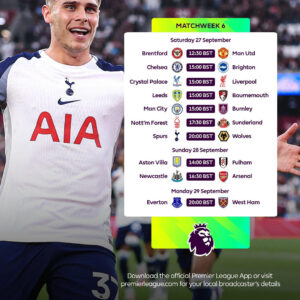Introduction
If you’re eyeing/aiming a career boost in health care this year, picking the right online courses with certification could be your best and smartest move. Not only are they flexible and accessible, but they also arm you with in-demand skills—whether you’re stepping into management, IT, compliance, or patient support.
Let’s break down five standout online programs you absolutely shouldn’t miss in 2025.
1. Healthcare Management and Finance (University of Michigan via Coursera)
This online specialization equips you with the nuts and bolts of financial analysis, organizational leadership, and health care administration. Think beyond budget sheets—this program teaches cost-benefit analysis, mergers, and income statement interpretation, all tailored for health care. Perfect for managers aiming to lead smarter and stronger. Coursera
2. Healthcare IT Support (Johns Hopkins University)
Got an eye for tech? You’ll dive into electronic medical records, patient privacy, telehealth systems, and health informatics—things that keep hospitals humming smoothly. IT support is now mission-critical in every clinic, hospital, and telehealth platform. Consider this course your digital white coat. Coursera
3. Introduction to Healthcare (Stanford University)
Starting from square one? This course is your go-to. It covers health systems, ethics, medical billing, policy, and access to care—an excellent 360° foundation for anyone new to the field. It’s like the blueprint of health care made simple and high-impact. Coursera
4. Healthcare Analytics Essentials (Northeastern University)
Healthcare is driven by data. This course teaches you how to use analytics, systems thinking, and safety frameworks to improve patient outcomes. You’ll gain insight into performance measurement and strategic decision-making, essential skills for modern, tech-forward care. Coursera
5. Healthcare Law (University of Pennsylvania)
Want to navigate the legal maze of health care? Here’s your crash course in HIPAA, GDPR, medical privacy, and health policy compliance. If you’re in risk management, administration, or data roles—this course is a shield of knowledge. Coursera
Bonus: Mental Health and Resilience for Healthcare Workers (University of Toronto)
Healthcare folks are human too—and burnout is real. This course offers tools in stress management, compassion, resilience, and emotional intelligence—helping you not only survive but thrive. Investing in this is investing in long-term career sustainability. Coursera
Why Certification Matters in Health Care Today
Healthcare doesn’t stand still—and neither does certification. Staying current improves job performance, safety, and compliance. Professionals who invest in continuous learning not only elevate their own skills, but also contribute to safer, more efficient care systems. WikipediaAIHCP
Benefits of Online Learning for Health Care Professionals
Online courses offer unmatched flexibility, affordability, and relevance. Whether you’re juggling shifts or working remotely, these online courses let you learn at your pace, track progress, and access quality instruction—all without taking a sabbatical. Studies confirm these methods enhance learning outcomes in clinical environments. CareerSmart LearningDr. Jim Collins
How to Choose the Right Online Health Care Course
Ask yourself:
-
What’s my goal? (management, data, law, self-care)
-
Is the institution reputable? (e.g., University of Michigan, Stanford)
-
Will this credential boost my career?
Balance time commitment, relevance, and flexibility to pick smart.
Trends in Health Care E-learning (2025)
Healthcare training is evolving—e-learning has become essential for integrating AI, telemedicine, and digital records. Courses now focus more on resilience, coaching, and remote care. For example, the explosive growth of health coaches shows the trend toward preventive, rather than just reactive, care. Financial Times
Conclusion
Investing time in the right online courses can transform your health care career in 2025. Whether you’re managing budgets, supporting patients digitally, ensuring legal compliance, or harnessing data—there’s a certified path waiting for you. Choose wisely, learn passionately, and let your new skills open doors.
FAQs
Q1: Are these online health care certifications recognized by employers?
Yes! Institutions like the University of Michigan and Stanford carry strong industry credibility, giving your resume real weight.
Q2: How long do these courses typically take?
Most range from a few weeks to several months, depending on your pace and specialization.
Q3: Can I take multiple courses at once?
Absolutely—just plan wisely. Mix foundational courses with niche topics like analytics or law for a versatile skill set.
Q4: Will these certifications help me in health care management or leadership roles?
Definitely. Courses in finance, law, and resilience directly support advancement in admin, compliance, and strategic roles.
Q5: Are online courses reliable for clinical or hands-on learning?
While they excel in theory and systems training, practical skills may need supplemental in-person or simulation-based training.








